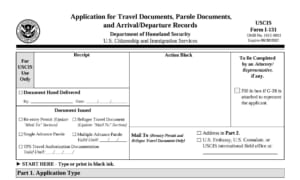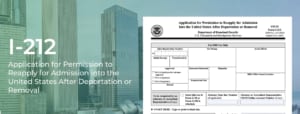Enterline and Partners Co-Founder, Ryan Barshop sat down with Philippines cable news GMA 7 to discuss the new social media handle disclosure when applying for U.S. visas and its implications to applicants.



Once the United States Citizenship and Immigration Services (“USCIS”) approves an I-129F Petition for Alien Fiancé, the foreign fiancé typically has four (4) months to apply for a K-1 fiancé visa at a U.S. Embassy or Consulate. However, due to the time that it takes for an approved petition to be sent and received by the National Visa Center and then forwarded to the foreign fiancé’s embassy or consulate where he/she will undergo a visa interview, petition revalidation is possible. While the interviewing consular officer will often automatically revalidate an expired petition, demonstrating ongoing intent that the U.S. citizen and foreign fiancé intend to marry within ninety (90) days upon the foreign fiancé’s arrival in the United States may be requested. The rationale behind requesting updated documentation showing continued marital intent is to ensure that the couple’s bona-fide relationship remains current and genuine. It further helps to reduce prolonged processing

Foreign nationals who arrive in the United States as nonimmigrants and then file for adjustment of status may also file for advance parole in conjunction with their Form I-485, Application to Register Permanent Residence or Adjust Status with the United States Citizenship and Immigration Services (“USCIS”). Advance Parole differs from a Re-Entry Permit because while both use the same form; Form I-131, Application for Travel Documents, Parole Documents, and Arrival/Departure Records, USCIS issues Advance Parole to those seeking to temporarily depart the United States before their lawful permanent residence is approved. A re-entry permit is for those who are already lawful permanent residents and are looking to travel outside the United States for a short period without abandoning their permanent resident status. An example of a foreign national who would be eligible for Advance Parole is somebody who entered the U.S. on a K-1 fiancé visa. After arriving and marrying

If you have been deported from the United States and looking to re-enter, you may be eligible to file a Form I-212, Application for Permission to Reapply for Admission into the United States After Deportation or Removal (“Form I-212”). The Form I-212, which is submitted and adjudicated by the United States Citizenship and Immigration Services (“USCIS”) is required for those who are seeking to enter the U.S. while they still have a re-entry bar after they have been deported. The Form I-212 is often filed in conjunction with a Form I-601, Waiver of Inadmissibility, which is used when a foreign national is found to be inadmissible based on previous criminal or immigration violations. However, unlike a Form I-601 in which the standard of review focuses on “extreme hardship” to the qualifying U.S. citizen or lawful permanent resident, if the foreign national is prohibited from being allowed to immigrate to the
Copyright 2012 – 2024 Enterline and Partners Consulting | All Rights Reserved



